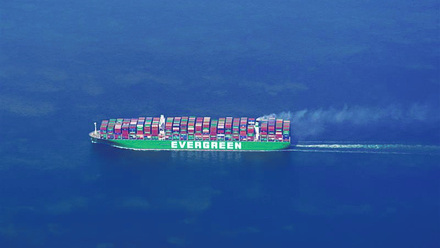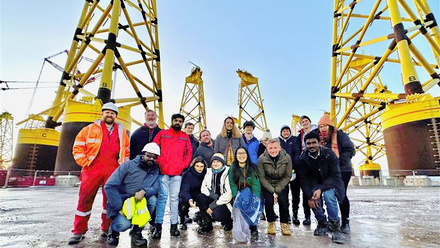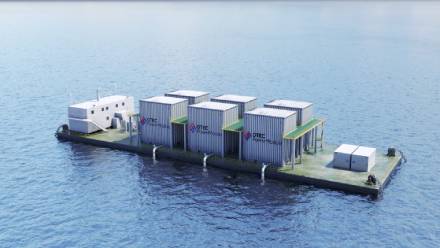New thesis explores net zero shipping solutions
IMarEST member compiles report about the cost competitiveness of nuclear molten salt reactors for future marine propulsion.
By Conrad Dillon, CMarEng (note: this represents the conclusion from a thesis submitted to the University of Plymouth)

It is widely recognised the shipping industry needs to make changes to reduce its overall contribution to the world’s greenhouse gas (GHG) emissions. Indeed, initiatives such as energy efficiency legislation and a move to constructing vessels that operate on alternative fuels are being promoted to meet net zero target levels.
Governments and legislative bodies are reviewing new measures to increase this rate of change; these could include a carbon tax levy on the amount of CO2 that is emitted by the various vessels that continue to use fossil fuels.
Within the last decade, several shipping companies have invested in the building of liquified natural gas (LNG) fuelled vessels to reduce their GHG emissions. However, LNG is not in itself net zero, only reducing CO2 emissions by an estimated 25%.
As a result, companies are exploring fuel alternatives such as methanol and ammonia propelled vessels, with investment in methanol ships becoming the latest trend. However, the availability of green methanol needs to be reviewed as it is limited, with the bunker and supply chain infrastructure undeveloped.
Moreover, the low energy characteristics of methanol would result in higher volumes of fuel than traditional alternatives. The production of green methanol requires a large amount of energy, and for it to be considered green, this energy must be obtained from a renewable or non-fossil fuelled energy source. The cost of green methanol is expected to be high, and that is without factoring in the increasing demand and limited supply in the short term, which would increase vessel operational costs.
Going nuclear
There has been significant discussion regarding the use of compact nuclear reactors as a viable alternative fuel source for large vessels. While it is recognised that legislative challenges around the use of commercial nuclear-powered vessels would need to be overcome, government policy is already changing, as can be seen by the previous UK government signing off on the Merchant Shipping (Nuclear Ships) Regulations 2022 that came into force as of 8th December 2022.
A nuclear commercial vessel comes with many advantages. It would not require the same level of global infrastructure development to become a viable solution. Furthermore, their annual operating costs would be more predictable over the long-term and not as influenced by changing market conditions, while the vessel itself would not be subjected to carbon tax regulations, as it would emit zero GHG emissions. Operationally there are no financial savings from slow steaming when operating a nuclear reactor, allowing for faster transit times.
A further benefit, where the infrastructure is available, would be for the nuclear compact molten salt reactor (CMSR) vessel to be connected to the electrical grid in port, allowing it to supply power to the port as a reverse cold ironing process.
Furthermore, to introduce base loading to the onboard electrical distribution system, consideration could be given to installing containerised hydrogen electrolysers. This would allow green hydrogen production during transit and while in port.
Understandably the stigma associated with nuclear fuel brings with it challenges that need to be conquered. There are currently around 160 ships using nuclear power, predominantly submarines, naval ships and icebreakers. Changes to legislation, crew training, and a dedicated campaign to promote the safety features and inherent stability of the new Generation IV reactors could be the spark needed to segue into commercial and passenger shipping and help the industry on a pathway to net zero.
Image: a nuclear-powered icebreaker in the Arctic; credit: Shutterstock.
Tell us what you think about this article by joining the discussion on IMarEST Connect.





